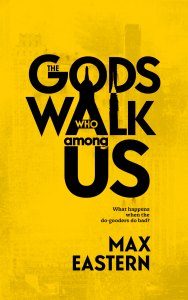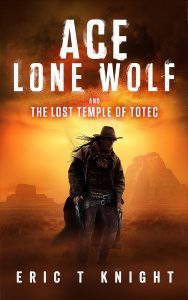By Debbie Burke

Kindle Scout has been called American Idol for authors or a Slush Pile Popularity Contest. Amazon defines it as “reader-powered publishing.” Scout has now been around for a couple of years, with nearly 250 books published so far, making it a good time to review its performance.
How Scout works:
Authors submit a 50,000+ word book to Scout, with cover copy, logline, bio, etc. Submissions can be made year round, but only one book at a time per author. Amazon posts an excerpt online for 30 days for readers to peruse and, if they like it, they nominate it for publication. During that time, authors drum up votes through social media, email, and personal contacts, urging their book toward the coveted “Hot and Trending” classification.
When Scout accepts a book, the author receives a $1500 advance, 50% eBook royalties, and a 5-year renewable contract with Kindle Press. While the quantity of nominations carries weight, the number of votes is not the only determining factor. Scout’s editorial board makes the final decision to publish or not and they ain’t talkin’ about why they choose one book over another.
Comparison between Scout Kindle Press and Kindle Direct Publishing (KDP):
Since I’m researching which route to go for my suspense novel Instrument of the Devil, I ran a quick and dirty comparison between Scout and KDP. This by no means covers all differences between the programs. Of course, authors should carefully read both contracts before making a decision.
An interesting aside: when I printed out the contracts, Scout’s came in at four pages, while KDP’s was 21 pages (albeit in a slightly larger font).
- $1500 advance
- 50% royalties on eBooks
- Amazon marketing
- Amazon sets pricing
- Rights exclusive to Amazon
- 5 year renewable contract*
- No advance
- 70% royalty on eBooks $2.99+
- Do it yourself marketing
- You set pricing
- After 90 days Amazon exclusive, you may sell in other venues
- No time limit
*If your book doesn’t earn out $25,000 during the 5 year period, you may request reversion of your rights.
The time from submission to acceptance/rejection is about 45 days under Scout, lightning speed compared to traditional publishing, but slower than KDP where your book can be available for sale as fast as you can upload. The book launch time varies, but according to several sources, runs about four months. Scout is experiencing growing pains, a victim of its own success. A number of authors mentioned understaffing and slow response times to questions. Still, in comparison with trad pubbing, it’s a relatively quick process. If you require faster publication, go KDP.
Who Uses Scout?
When I looked into winning Scout entries, I found surprisingly few first-time authors. Many winners already had multiple books in print, both self-published and traditional. The added promotion by Amazon for a Scout winner should result in significant bumps in sales of backlists.
What Authors Think of Scout:
I reached out to several winning authors who graciously shared their experiences.
Eric T. Knight, author of Ace Lone Wolf and the Lost Temple of Totec, already has multiple books published through KDP and chose Scout “more or less on a whim.” Overall, he grades the experience a B or B+. “The contact person I’ve worked with has been helpful and friendly. It didn’t feel like I was dealing with a machine. I also thought the feedback from the editor was good.”
On the downside, Eric misses the control he has with his other books in KDP. “I wish I could choose when to run promos instead of waiting for them. I’m used to tweaking my blurb pretty regularly and with Scout you have to go through them. You don’t have access to sales figures as they happen, the way you do with KDP.”
V.B. Marlowe, author of Forever Snow, has self-published an impressive 30 books in the past four years. “Marketing isn’t my strong point. I figured having a book published by Kindle Press would give me the privilege of having Amazon’s super marketing powers behind my book.”
She is pleased with the responsiveness of Scout’s staff, but “I only wish I had been given a heads up about when my book would be available. It was kind of a guessing game. Books selected after me were being set up for preorder while my book was still in production status, so I was a little worried. They do send you a letter once your book is already on preorder, but not before.”
With the launch date of April 25, V.B. doesn’t yet have firsthand experience with Scout’s marketing, but other authors she’s communicated with say Kindle Press runs special promotions 90 days after publication. “I do know that KP regularly submits our books to Bookbub. Just this month they had a special anniversary sale and promoted all KP books.”
She adds, “I think the best way to increase sales is to publish regularly so I already have Book Two of this series ready to go.”
Max Eastern is a New York attorney and The Gods Who Walk Among Us is his first published novel. His impression: “What few problems there have been were very minor,
 and I’m actually quite happy with the Kindle Scout program as an alternative to traditional publishing.” He adds, “It’s fun voting for a book. Human nature being what it is, readers are more apt to like your work if they see that someone else has already liked it before them.”
and I’m actually quite happy with the Kindle Scout program as an alternative to traditional publishing.” He adds, “It’s fun voting for a book. Human nature being what it is, readers are more apt to like your work if they see that someone else has already liked it before them.”
Currently Kindle Press only offers eBooks and audio. Max would like to see coordination between them and CreateSpace to make print versions available. Amazon, are you listening?
Kindle subcontracts editing to Kirkus and, according to Max, “it was strictly a one way street,” unlike the give and take in the trad pub editing process. “I was given a document…with his editorial suggestions, and allowed to accept or reject them. I had no means of communicating with him.”
Max raised an interesting question: if your first book is published through Kindle Press, what about future books? “Your readers are going to assume that, once published the first time, you will be published a second time automatically, and they might think there has been some failure on your part if they have to go through the process of voting for you again on Kindle Scout.”
The marketing advantage of a Scout win to authors with backlists is obvious. But how does that work for a first book with more books to follow? Has anyone in the TKZ blogosphere had experience with subsequent releases after a Scout win? Please chime in and let us know how you handle it.
What if You Don’t Win?
Even if you don’t secure a contract, there’s a nice consolation prize.
When you submit, Amazon has you write a thank-you note to readers who nominated your book. If your book is chosen, everyone who nominated it receives your thank-you note, along with a free eBook, immediately building your fan base
If your book isn’t chosen, you can still take the KDP route. Amazon still sends the thank-you note to everyone who nominated it, giving you the opportunity to sell your book to readers who already liked your excerpt—an instant leg up in readership.
Scout is another of Amazon’s many fresh, imaginative innovations. Yes, there are growing pains, but from my research, most participating authors range from satisfied to delighted with the program.
As both Eric Knight and V.B. Marlowe say, “It’s worth a shot.”




Thank you for the detailed information on Scout. Another look at getting published. I appreciate the information. BK
You’re welcome, Betty.
Thanks for your take on this. Coincidentally, I was recently at a retreat where a publishing lawyer talked about contracts, caveats, etc. Her basic comments (based on a year-old Scout contract, so it might be different now)
1. Scout is basically vanity publishing
2. They only publish e-books, but no publisher will pick up a print contract if Amazon controls the e-rights
3. If you want to terminate before your contract is up, you will owe Amazon for any unearned royalties.
Her overall takeaway: Amazon is simply trying to sell the most product at the lowest possible price.
For me, the “rattle the bushes for votes” was the first turn-off, although I have a good friend who got into the program when it first came out. They took her first book, but rejected the sequels, so she’s stuck with one that’s exclusive to Amazon (another total turnoff for me) while her other 2 can go wide.
I’m a lawyer and not sure why she called it vanity publishing. There is no cost to the writer and there is some editorial and competitive vetting. It sounds like she is one of those “trad pub or no pub” at all types. Which is fine, but only favors a very few who catch the slush pile brass ring.
Now, the contract definitely has issues and favors Amazon and writers should know what they are getting into. I wouldn’t put a series in Kindle Scout, but for a stand-alone, especially these days? I’m intrigued.
I think she might have been referring to the costs to the author of providing the cover when submitting, plus from the authors I’ve spoken with, Scout’s editing is minimal, so to be considered, authors are likely paying an editor as well before submitting. During her talk, she did not come across as “trad or nothing” by any means. However, she moved quickly and had a lot to cover, so she covered Scout very superficially, and there were no questions about her definition.
Terri, thanks for your thoughts. I was hoping authors who had firsthand experience with Scout would chime in and share, especially if Kindle Press published their first book.
Let me respond to this in order.
1. No. Nope. Nadda. Kindle Scout is the recruiting arm of Kindle Press. A publisher who offers you a contract (not you pay them) and gives you a generous advance and 50% royalties. Most authors at traditional presses get 7%.
2. You are correct, they pick up ebook and audio book rights. You are not correct. Several Kindle Press people have gone on to sell print rights, movie rights, and other rights and been quite successful.
3. No press allows you to terminate your contract. None. Once a publisher buys your rights, they have them for EVER. Kindle Press has a ‘poor selling’ clause that allows you to have your rights returned to you if your book doesn’t do well.
While the voting part of Scout gets a lot of attention, editors are the ones who make the final decision. Plenty of books are chosen with relatively few votes. As any publisher though, once you sell them your rights, they have them. Your alternative is self-pub and that is a great route for many. Scout, however, is a fantastic way to build an audience or for stand alone novels.
“Most authors at traditional presses get 7%.”
No, John. Comparing trad pub print rates with Kindle Press digital rates is not valid. Most authors at traditional presses get deals that give them print editions in bookstores. This is a digital-only deal and many trad publishers offer 50% royalties on this basis.
“Several Kindle Press people have gone on to sell print rights, movie rights, and other rights and been quite successful.”
Examples?
“Once a publisher buys your rights, they have them for EVER.”
Capital letters do not make a false statement true, John. Must try harder.
Countless indie authors are now selling their formerly trad-pubbed titles having had their rights reverted. Bob Mayer, Joe Konrath… The list is endless.
Rights-reversion clauses are offered by, for example, PRH’s digital-first imprints. From Writer Beware: “Three years after publication, the author can demand reversion if sales fall below 300 copies over the 12 months preceding the demand.”
Thanks for sharing your experience, Terry. Always glad to learn from a more experienced hand at publishing.
The Scout contract was just updated as of 3/25/17. No matter how the contract changes, the moral for all authors remains the same: READ THE CONTRACT.
Scout pays an advance and royalties, making it different from “vanity,” in which the author pays the publisher (and hardly ever receives royalties). However, the author is responsible for obtaining a cover before submission, which requires upfront money out of pocket and saves Amazon that cost. So that cost-sharing does put Scout in a gray area between trad and vanity.
Amazon only publishes eBooks and audio, although I haven’t heard of any cases where they actually exercised audio rights and produced an audio book. The attorney may well be correct that no publisher would touch a book where Amazon owned e-rights.
A safe assumption is that Amazon will always be more focused on their bottom line than on their authors’ bottom line.
As mentioned, Scout seems to be a more attractive option for authors who already have a backlist where those sales will be boosted by a win. Submitting the first book in a series, where Amazon may not accept subsequent ones, is a risk. All depends on what the writer’s goals are.
Yes, drumming up votes is a turn-off, but for many writers, all marketing is a turn-off–the eternal dichotomy for our profession.
Again, Terry, thanks for sharing your take. I always feel the best decisions are made by gathering the most information, so all input is gratefully accepted and considered.
I should have read this before responding to Terri Coop’s post. Thanks for your clarifications.
Thanks for being our guest again at TKZ, Debbie–really helpful info and insight in this post! I confess I know next to nothing about These in-house Amazon programs. Bookmarking it for future reference in case I ever put a toe into the self-publishing waters! I’m nearing completion on a series book that’s not under contract yet, so I’ll be looking at all the options that are out there.
Thanks for inviting me back, Kathryn. It’s always an honor to be a part of TKZ’s great community!
“A safe assumption is that Amazon will always be more focused on their bottom line than on their authors’ bottom line.”
That is equally true of traditional publishers. Also, there is. Itching wrong with investing in your own work. I prefer commissioning my own covers, that doesn’t make a publisher a vanity. Vanity publishers do not vette the work, KP most assuredly does.
You are right, L.G., any business must focus on the bottom line to survive. I certainly don’t begrudge Amazon their profit b/c they have democratized the publishing process for many worthy books that would have never found a home in the trad era.
IMHO, this is a great time to be a writer b/c of different opportunities like Scout. It’s not for everyone, but it’s worth consideration.
Darn auto-incorrect! “There isn’t anything wrong…”
I’m itching to get rid of auto-correct 🙂
As a person who appreciates the value and necessity of research, I stand in admiration of the amount of work, creativity, and presentation of your information.
I’m not given to swearing, but as Paul Putman wrote in the high school annual of my Junior year, “Damn good show.”
Aw, Jim, you made my day into a damn fine one. Thanks!
I’m a two-time Scout winner. The sequel for “To Kill a Sorcerer” was also chosen by the Amazon editors. However, the best marketing device, Amazon Prime Reading, is not available to sequels. As a result, the second book has done very poorly compared to the first. I still have not received an answer as to why sequels receive far less marketing than the original story. Scout authors are also barred from independently paying for Amazon marketing, like advertising on the Kindle or offering their book to Bookbub. If Kindle Press does not put your book in these places (and I know of hardly any Scout books advertised on the Kindle), it’s tough luck for the author.
Greg,
Thank you for speaking up. I really hoped someone like you who’d had direct experience would add to our knowledge base. That is a sobering story. While it seems counter-productive for KP to let a book languish, we’ve seen that scenario play out for years with trad pubbers. What’s really disturbing, though, is your inability to promote it on your own at your own expense, which can only benefit KP, along with the author.
Sorry it’s been a disappointing experience, but TKZ readers are wiser b/c you shared it. Meanwhile, I’m heading over to the ‘Zon to check out your Scout winners.
Just to clarify, Scout authors can’t promote on Amazon resources, like AMS which requires the publisher to book the ad. By contrast, if you go through KDP then you are essentially the publisher, and you can advertise via AMS. But with Scout, Amazon is the publisher, and your AMS account will not show the book.
But by all means, we are free to advertise books elsewhere, and many of us do.
As a two-time Kindle Scout winner myself, I feel the need to clarify something about advertising. We are not prevented to advertise our titles. What Greg is referring to is Amazon Marketing Services, which allows publishers to buy ads on Amazon. For that system, we are not publishers of the titles and thus can’t buy ads for our Scout books on Amazon. The same would hold true for any trad pub title you write. However, we can and do advertise our titles elsewhere.
Hope that’s clear.
Jaxon,
Thanks so much for the clarification about advertising. And congratulations to you for your double Scout win!
First, I heartily disagree that Kindle Press is a vanity publisher. Yes, you have to provide your own cover, but that’s akin to self-publishing, not vanity publishing.
I have three books with Kindle Press through the Scout program. I had self-published two books before I submitted the first of a new series (and new genre) to the Scout program. My second book is a stand alone. My third book is the second in the series. It will be released in 2 weeks, so I don’t know how well Kindle Press will promote it, but they still actively promote the first book in the series, so I expect that will lead to sales on the second.
I’ve been very happy with the promotion my books have received. Though I’m aware that not all books are promoted equally. You are definitely allowed to promote your Scout books on your own dime, just not with Amazon ads.
Linda,
Glad you’ve had a good experience through Scout. It will be interesting to see how a second book in a series does, coming after the stand alone.
You certainly must have mastered the nomination process well to shepherd three books through it successfully! Maybe your fourth book should be “How to Run a Winning Scout Campaign.” *wink*
Thanks for sharing your information and best of luck on the new release!
KDP isn’t a publishing platform. It is a distribution platform. Anyone can distribute their work through KDP. Kindle Scout is the selection arm of Kindle Press an actual Press. If this were 47 North or Random Penguin, you wouldn’t be comparing them at all, because there is no comparison. Just because Amazon own KDP distribution and Kindle Press, doesn’t make them the same thing. Amazon own a whole bunch of imprints.
John,
Amazon thrives on innovative methods of marketing, which can be complicated to understand and untangle. That’s why it’s helpful to have comments like yours and others who’ve chimed in to broaden our knowledge about this sometimes-scary beast that has turned traditional retail on its head.
I wonder if history will eventually be divided into more eras than BCE and AD. Will there someday be BA (before Amazon) and PA (post Amazon)?
Just chiming in here. My book, A Scrying Shame, is a Kindle Scout winner. Amazon has promoted it in a variety of ways. Currently it’s in the Amazon Prime Reading program, but it has also been given a Kindle Fire Limited Offer promo which was great. Some of the promos–many in fact–aren’t all that wonderful but Kindle Press seems to try and get at least some promo per book on a 3 month basis. With as many books as have now been picked up sometimes an author needs to send an email with a little nudge.
Rights are one area where there is a huge positive difference from trad pub. Under certain conditions authors can request the book’s rights back, which is very different from trad pub.
As for the vanity press label, I very much disagree. Because the Scout campaign is conducted in the public eye, it only makes sense to present your submission in the best light possible. Getting a professional cover and edit before entering was a no-brainer to me, and something I do with all my books, Scout or not. Also, Kindle Press has re-done some authors’ covers and they also give every book a professional edit before publishing. Recently a bunch of folks had their covers updated in honor of the two year anniversary.
Oh! And you can promote your book at your own expense, although not via Amazon ads. But when Amazon put your book on sale–sometimes 99c for a month–you can submit it for various promo sites. You can also run FB ads. But keep in mind, my book isn’t really *my* book anymore. Kindle Press/Amazon own its rights. As such it seems perfectly reasonable for them to be selective about how it gets marketed.
Donna,
Thanks for your additional input. Competition is so great in all types of publishing (except vanity), you’re right that it only makes sense to put forth the most professional package you can.
Appreciate you joining the discussion!
I’ve got two books published by Kindle Press, my first was selected via Scout and the second was a successful direct submission. The prequel is in a Scout campaign right now. This is a crime series and I previously had a speculative fiction book published by a small UK press (I’m in the UK).
My first Kindle Press book was very successful for me, particularly in the UK where I wanted it to be – Kindle Press listened to my marketing needs and promoted it there into the top 20 paid books ranking. Through that I got an agent for my debut psychological thriller and in that process, and the sale of the novel, that fact that I was published by Kindle Press with high book sales was taken very seriously and was a bargaining chip in my negotiations. And yes, print and foreign language rights on my Kindle Press books were discussed despite Kindle press retaining ebook rights.
Kindle Press is not a vanity press. It is a hybrid of traditional and self-publishing. I am one of the lucky authors who had their cover changed for the anniversary and my books have received some fantastic promotions in UK, US and Australia. I’ve now got a major two book deal but I’ll continue to publish my series through Kindle Press (if they continue to want to!) with the full agreement of my agent and new publisher who recognise the value of Amazon marketing my series and the impact it will have on sales of their titles.
There have been some minor glitches such delays on email responses but mine got answered in the end and many of the things I was going to ask about were answer by my fellow Kindle Press authors who are very supportive.
I’m one happy Kindle Press author – if it wasn’t for the visibility I have receive through the campaign and marketing my novels would still be on a memory stick in my desk drawer. As it is, I now have a writing career.
Jacqui,
Thanks for sharing your terrific Cinderella story.
The fact that your publisher is still interested in foreign and print rights, even though e-rights are tied up, is encouraging. Maybe publishers across the pond don’t harbor the animosity toward Amazon that many American companies do. UK publishers may recognize an opportunity to ride Amazon’s coattails, while some US publishers resent the giant that has gobbled much of their business. Kudos to the Brits for figuring out a way to turn the competition to their advantage.
Congratulations and best wishes for your continuing success!
A big thank you to the Scout winners! We’re all wiser b/c you shared information and experience.